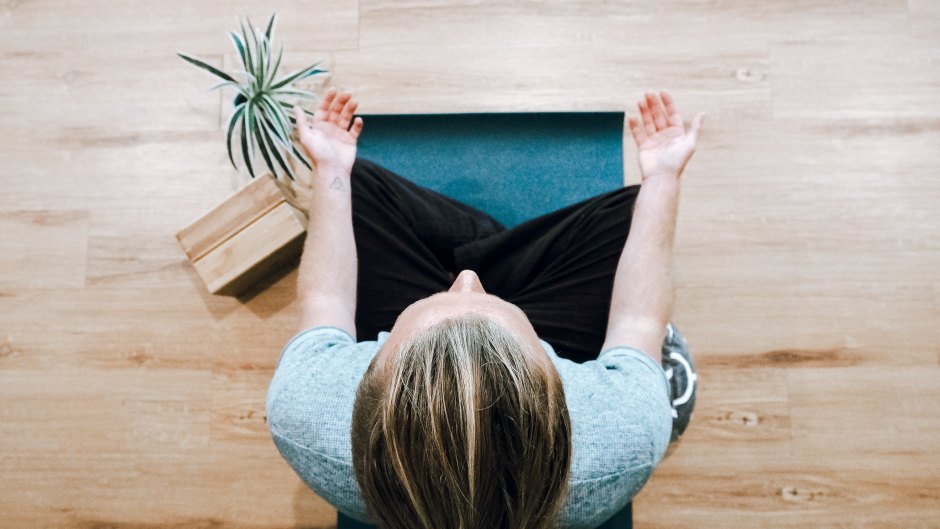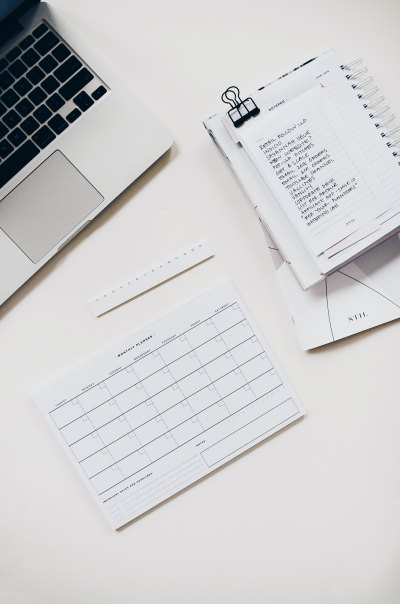
Unsplash
How To Reduce Stress and Prevent Feeling Overwhelmed Throughout the Day
It’s difficult to deal with feelings of overwhelm, and lowering stress levels can be tough. If you’ve been struggling with anxiety for a long time, you might be wondering if there are any good ways to reduce the stress that you haven’t already tried. After all, many people recommend trying to reduce your stress in order to improve a plethora of health-related issues, but very few of them are able to give us recommendations.
If you’re struggling to reduce your levels of anxiety and want to prevent feeling overwhelmed as much as possible, I may have a few techniques that you’ll find helpful. Additionally, many industry leaders have spoken on the topic of improving your mental health and their tips for maintaining and lowering levels of stress. Keep reading for a few tips on reducing these negative feelings because I’m about to break down everything you need to know.
Meditate
Out of all the habits that people recommend to improve mental health or stress, meditation is certainly one of the most commonly snubbed. If this is you and you’ve written on meditation without giving it a serious go, I’d highly recommend trying it out for a few days.
According to Jorge Vivar, the Creative Director of Mode, “Many people refuse to believe how well meditation works, especially once you’ve made a habit of it. Sitting in quiet just for a few minutes every day allows your brain to reset and let the calm come in.” This is the case for many of those who make a regular habit of meditating on a daily basis. Apparently, just five to ten minutes a day really can take away a lot of feelings of stress and overwhelm, especially after you’ve done so for a period of time and given it a serious attempt.
Minimize Phone Use and Screen Time
As technology becomes more and more necessary for each of us in our working and social lives, it’s gotten increasingly difficult to put down our phones and spend much time away from our screens. Many of us will wake up and immediately scroll through our phones, but it’s pretty likely that this is only making our mental health worse.
Dedicating some time away from our screens may help many of us decrease stress. “I just refuse to use my phone the first couple of hours I’m awake,” begins Benjamin Meskin, the President of Cabrella. “Reducing my screen time really lets me get more comfortable with silence, ease into the day, and clear my mind before I have to be productive.” Many actually find they’re significantly more productive if they spend less time on their phones, which might lower stress around not getting things done on time.
Have Less Caffeine
While coffee might be a great jump start for many of us in the morning, there’s a chance that having a lot of caffeine could be detrimental to our stress levels and mental health in general. Apparently, reducing the amount of caffeine you take in on a regular basis might help.
“Dropping caffeine is great,” says John Cheng, the Co-Founder and CEO of Baotris. “It’s not completely out of my routine yet, but it’s really encouraged me to regulate my sleep schedule and feel less jittery or anxious during the day, especially in the morning.”
Spend Time With Your Loved Ones
Spending time with the people you love may also help reduce stress. Matt Miller, the Founder and CEO of Embroker, explains, “We are such social creatures. I try to have a conversation with someone I love at least once a day. Talk on the phone, sit and watch a movie, share memes online, it all just allows me to feel a little more connected to everyone in my life.”
Or another way to explain it is in the words of Lisa Olivera, who says, “Just because no one else can heal or do your inner work for you doesn’t mean you can, should, or need to do it alone.” Making sure you feel connected to others is a great way to combat feelings of stress or overwhelm, especially as they relate to loneliness.
Learn to Say “No”
If you feel the need to help all of your friends whenever they ask or attend every event you’re invited to, it might be a good idea to work on establishing some boundaries. “Sometimes you just don’t have enough time in the day,” says Alex Wang, the CEO of Ember Fund. “If you don’t have the energy to the party, don’t party. If you have other obligations you think are more important, let yourself prepare for those. If you’re tired, don’t be afraid to cancel every once in a while.”
By allowing yourself to say no, you’re giving your body time to repair itself and relax for a little while. This not only lowers your stress levels, but it may also make you less likely to get sick if this is something if that’s something you experience often.
Have a Self-Care Routine
“Every night,” starts Caleb Ulffers, the CEO of Haven Athletic, “I turn off my phone for a few hours before bed. I light a candle, wash my face, read a book, and conk out. Getting used to the quiet is a great way to shut yourself away from work calls when you’re off the clock, and falling asleep is so much easier when my mind has been given time to enjoy a bit of silence.”
This is a great example of a self-care routine, as it’s something you might want to do on a daily basis in order to wind down and focus on yourself. Your routine can also look completely different from this one, but do whatever allows you to relax at the end of the day if you can.
Take a Walk
According to Umer Usman, the Head of Growth of AvantStay, “Going on a walk whenever you feel overwhelmed is a lifesaver. Exercising in general lets the nervous energy out somehow, and lets you set aside this essential time to be by yourself if that’s what you need.”
If you want to take a walk or exercise a little bit every day, your body will certainly appreciate the opportunity to let out any excess energy. Many people also find that going on a walk allows them to clear their heads of intrusive thoughts, reducing the likelihood they’ll get stressed over a habit of over-reminiscing.
Use a Scented Oil Diffuser
Many have also reported great levels of success with using an oil diffuser to reduce their stress. “I use this scented oil diffuser whenever I’m at home,” explains Sara Alshamsi, the Chief Operating Officer of Big Heart Toys, “and it’s amazing for getting me to calm down. Whenever I turn it on, it’s like my shoulders relax, I finally have a chance to take a deep breath, and I know I can wind down for the day.”
Many scents are associated with lowering stress levels and overwhelming feelings. They can allow you to associate certain places, like your home office or living room, with calm and peace. Some highly recommended scents, as long as you don’t have a pet to worry about, are lavender and eucalyptus, but there are many smells that may also work well for you and your circumstances.
Set Your Priorities

“Make a to-do list,” exclaims Ari Evans, the CEO of Maestro. “Set your priorities. Maybe figure out the three most important things you want to get done today, do what you can of the rest afterward, and then put all the work away. You’ve done your priorities, you can afford to have the rest wait until tomorrow, absolutely.”
There’s also some science to back up this idea. Many people are only able to do about seven things max per day, meaning there may be days where you only have the ability to do much less. By setting more achievable goals, you’re far more likely to feel less stressed and more satisfied with the work you’ve done for the day.
Ask for a Hug
“A bit of physical contact can be a huge stress reliever,” says Adam Bém, the Co-Founder and COO of Victoria VR, “I just ask a friend for a hug sometimes if I’m feeling especially overwhelmed about something, or I ask my partner for some extra cuddles at the end of the day. It’s reaffirming in so many ways, like a reminder that you don’t have to feel alone.”
And this is almost certainly true. Humans are social creatures, and getting a hug can help you feel less alone and like they’re still an accepted part of their group or tribe. If you’re in a situation where asking for a hug is appropriate, don’t be afraid to try this tip.
Deep Breathing
As Dr. Lauren Fogel Mersy says, “Deep breathing is our nervous system’s love language.” There is actually some evidence that deep breathing exercises allow our bodies to relax, lowering your heart rate and overall stress levels pretty quickly. Within minutes of focusing on deep breathing, you might expect to feel a little bit calmer, more focused, and a lot less stressed.
If you struggle with stress or anxiety, you aren’t alone. Please give a few of these tips a try, and be ready to watch your mental health improve in a matter of minutes or days, depending on the steps you want to take. Good luck on your mental health journey!
Have a tip? Send it to us! Email In Touch at contact@intouchweekly.com.





































